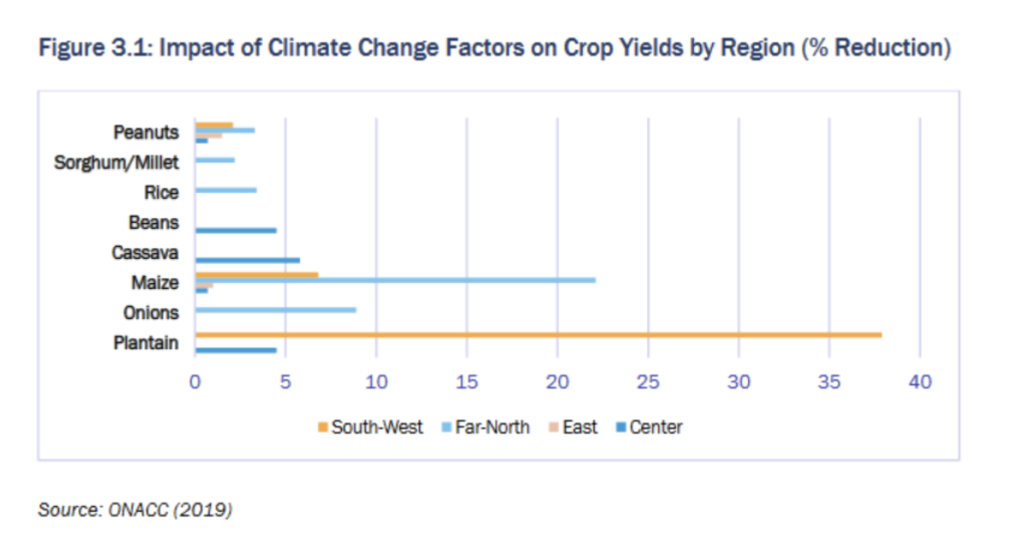Focus:
The Country Climate and Development Report for Cameroon identifies four priorities to address climate risks and provide opportunities for a green, resilient and inclusive future. The first priority is linked to establishing a Climate resilient Agriculture, Forestry and Land Use system to integrate adaptation and mitigation measures and advance sustainable development in all agricultural and -ecological zones of the country.
Chapter 3.2 of the report deals more specifically with the strategy for food, agriculture and forestry.
Key messages of this chapter are as follows:
- Climate change would accentuate existing challenges in the food system and increase food insecurity. Yields of crops have been hit hard by changes in temperature and rainfall patterns with reductions up to 38 percent over the 1998–2012 period (figure 3.1).

-
All food system stakeholders including government must support climate-smart agriculture, an integrated approach to managing cropland, livestock and forests that addresses the interlinked challenges of food security and accelerating climate change.
-
Technical solutions do currently exist in Cameroon and must be accompanied by climate-smart agricultural (CSA) investments and incentives, as those suggested in table 3.1.

| Year of publication | |
| Geographic coverage | Cameroon |
| Originally published | 08 Nov 2022 |
| Related organisation(s) | World Bank |
| Knowledge service | Metadata | Global Food and Nutrition Security | Climate extremes and food security | Climate-smart agriculture |
| Digital Europa Thesaurus (DET) | risk managementclimate change policyagricultural policygreenhouse gaspolicymaking |
